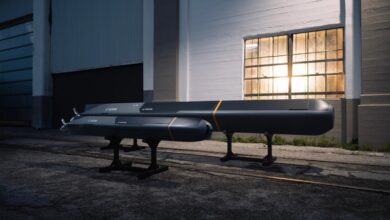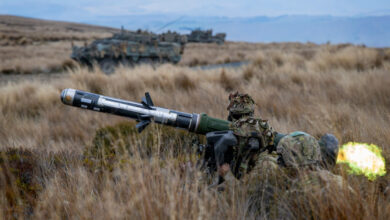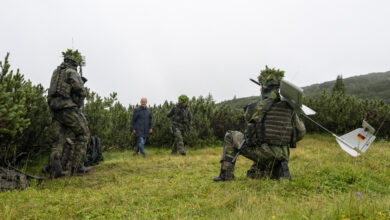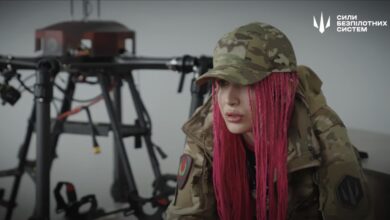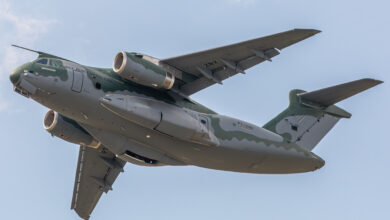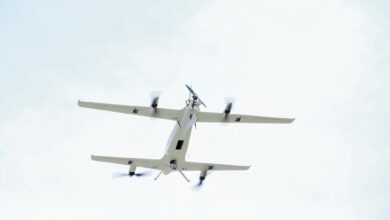The British Army has bought 30 “Bug” drones to provide soldiers with an aerial view of potential threats without the unmanned aerial vehicle (UAV) being easily detected by the enemy.
Weighing just under 200 grams, the smartphone-sized UAV, developed by BAE Systems and UAVTEK, can fly for 40 minutes, non-stop, and send back imagery over a range of two kilometers, the British weapons manufacturer said in a statement.
The drone is also capable of handling winds up to 50 miles per hour (80 kilometers per hour) due to its quadcopter design featuring four small rotors, the statement added.
The “Bug” is handled manually but can also function autonomously.
Additional Capabilities Possible
In the future, it could be equipped with additional capabilities such as an infrared camera and listening capabilities, allowing it to be used as a data hub on the battlefield.
The #autonomous ‘Bug’ drone can give armed forces a video feed beyond line of sight, enhancing tactical situational awareness.
Combined with other products the feed can be shared across land, sea and air.
Delivered with
SME @uavtek!
Read more
https://t.co/DelAuym0zE pic.twitter.com/vEoAOCACWs
— BAE Systems (@BAESystemsplc) December 28, 2020
“The Bug can deliver vital tactical intelligence on what’s around the corner or over the next hill, working autonomously to give troops a visual update,” said James Gerard, principal technologist at BAE’s Applied Intelligence business.
“Combined with our other information advantage products, this video feed could be shared multi-domain, enabling commanders on land, sea, and air to increase their situational awareness and inform their decisions.”
Part of $89M Plan to Fast-Track Robotic Projects
The procurement comes after the Ministry of Defence announced last year a commitment of 66 million pounds ($89 million) to fast-track military robotic projects onto the battlefield including mini drones that would provide troops with an eye-in-the-sky to give them greater awareness to outmaneuver enemies.
Meanwhile, Chief of Defence Staff Gen. Sir Nick Carter said last month that a quarter of British soldiers could be robots by the 2030s.
This statement came immediately on the heels of the head of the British Army, General Sir Mark Carleton-Smith, saying he wanted teams of humans and machines to be commonplace by 2025.





